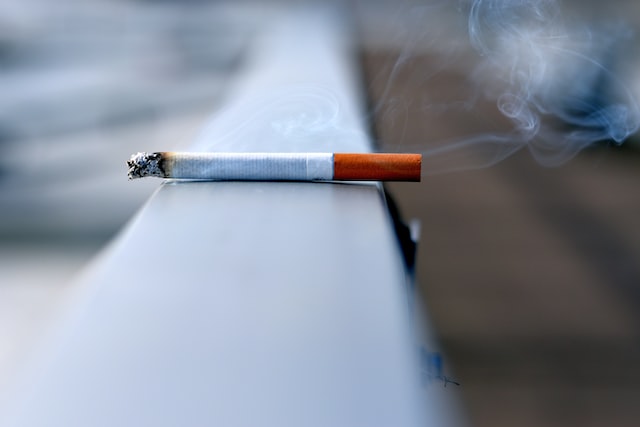Dry mouth and tooth problems

The feeling of dryness and discomfort in the mouth appears when there is insufficient saliva production. Saliva is necessary for moistening and cleaning the oral cavity and digesting food. In addition, it prevents the development of infection, suppressing the reproduction of bacteria and fungi in the oral cavity. Dry mouth can cause a significant problem to your health and teeth. The disease of dry mouth is called xerostomia. If you feel your teeth have been damaged from dry mouth, contact the best dentist in Burbank at 1-818-578-2332 to make an appointment today.
Why is normal salivation important?
Saliva is an important part of a healthy mouth. The lubricating properties of saliva provide comfort and help protect oral tissues from ulcers, wounds, and other friction effects. Saliva neutralizes acids and neutralizes many bacteria in the oral cavity. Saliva helps to digest food and protects teeth from the process of remineralization. Saliva is also a very important factor in a person’s ability to taste since it acts as a solvent for flavoring stimuli.
How does dry mouth affect teeth?
Without enough saliva, the food particles from the teeth are not washed away, and the acids in the oral cavity are not neutralized. As a result, the patients often develop multiple cavities, especially along the gum line. A dry mouth increases the risk of gingivitis (inflammatory gum disease), and various infections of the oral cavity. Also, a dry mouth can make it difficult to wear dentures. If any of those symptoms are present contact My Dentist Burbank today to schedule an appointment.
What are the symptoms of dry mouth?

- Difficulty speaking
- Difficulty swallowing
- Thick saliva
- Dryness in throat and mouth
- The sense of taste seems off
- Bad breath experience
- An increase in tooth decay
People with dry mouths can have problems with speech, nutrition, food tasting, and swallowing. Often, dry mouth is most pronounced at night, especially in people with shortness of nasal breathing. This can cause dry lips, and cause coughing. Patients may complain of mouth ulcers, or a white tongue, indicating a fungal infection. Burning tongue or throat, periodontitis, ulcers, wounds, and inflamed soft tissues can also be symptoms.
What Causes Dry Mouth?
Some of the common causes of dry mouth include:
Medications

There are a number of reasons why the salivary glands perform poorly their functions. This may be a consequence of taking medication. There are about 400 drugs that depress the salivary glands. These are blood pressure medications, antihistamines, antidepressants, diuretics, painkillers, non-steroidal anti-inflammatory drugs, and many others.
Nerve damage
The cause of dry mouth can be nerve damage in the head and neck due to trauma or surgical intervention.
Dehydration
A dry mouth can be observed in conditions that promote dehydration (high fever, increased sweating, vomiting, diarrhea, blood loss, and burns).
Tobacco and alcohol use
Smoking or chewing tobacco can help reduce the production of saliva, provoking a feeling of dryness in the mouth.
Health conditions
There are very unpleasant diseases that, first of all, affect the functions of salivation. These are diabetes mellitus, lymphogranulomatosis, HIV, Parkinson’s, and Sjogren’s disease.
The only way to get rid of the problem is to remove the causes of the disease.
How Is Dry Mouth Diagnosed?
The diagnosis of dryness in the mouth can be made by Burbank dentist, Dr. Sahakyan. Before starting your treatment, the dentist will review your medical history and perform a visual examination of your mouth. If dryness in the mouth is not caused by some external factors, it is necessary to establish the cause of the pathology accurately.
Treatment of Dry Mouth
We have already indicated that dry mouth is not an independent pathology. It is a manifestation of a disease. In order to eliminate it, first of all, it is necessary to overcome the cause of dryness. Most often, properly selected therapy for the disease that provoked the dry mouth effectively removes dryness.
Dentist’s recommendations to help improve saliva production:
- Sucking candies or chewing gum (without sugar).
- The use of large amounts of water (helps to maintain the humidity of the mouth).
- Prophylaxis of dental diseases (tooth cleaning with fluorine-containing paste, mouth rinsing with fluoride-containing products, regular visits to the dentist).
- The habit of breathing as much as possible with the nose, not with the mouth.
- Use of non-prescription substitutes for saliva.
Treatment includes a diet low in sugar, daily use of fluoride, and antimicrobial rinses to combat the effects of dry mouth. When choosing a mouthwash, you should prefer a product that does not contain alcohol. Toothpaste on an alcoholic basis will lead to further aggravation of dry mouth.
The patient should drink water more often during the day, especially during meals. Chewing gum can help stimulate salivation. Remember that you can not use chewing gum or sugar candies that contain sugar or the risk of developing caries will increase significantly.
Other means to combat dry mouth include drugs that help increase salivation. It should be noted that these medications can not be taken by people with asthma and glaucoma. Artificial saliva substitutes and oral lubricants containing glycerin will help with eating and socializing. They will not cure dryness in the mouth but will provide some relief.
Since people with dry mouths often develop fungal infections, local antifungal treatments, rinses and soluble tablets may be required.
Prevention
Measures to prevent dry mouth do not exist, but you can prevent the development of side effects.
It is necessary to refuse drinks with caffeine and from all sweet carbonated drinks because their consumption only increases thirst and dryness in the mouth. You can suck lollipops without sugar or chew gums, this stimulates the saliva flow. You will have to give up smoking and drinking alcohol. After all, health is more expensive, than bad habits that damage your health.
It is extremely important to detect, diagnose and treat dry mouth in a timely manner. Then it will be possible to avoid the devastating consequences of this disease.
If you have any questions or would like to know more about the reasons, effects, and treatments available for chronic mouth dryness, make an appointment to see the best dentist in Burbank Dr. Sahakyan. Contact us or give us a call at 1-818-578-2332.


